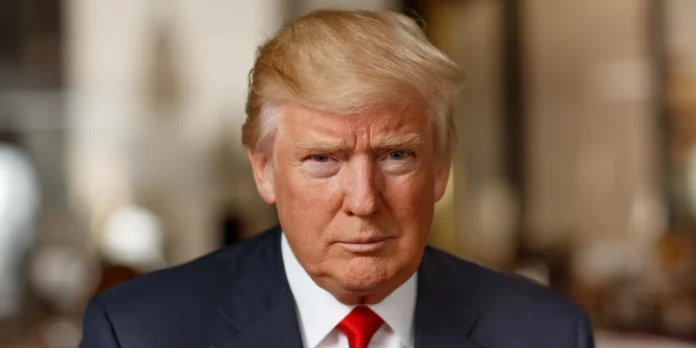In a dramatic turn of events, the United States has reportedly banned Britain from sharing American military intelligence with Ukraine, a decision that could significantly affect Ukraine’s battle strategy against Russian forces. The move, announced by Washington, has sparked a wave of concern among NATO allies, as it also follows President Donald Trump’s decision to suspend US military aid to Ukraine, raising doubts about the future of the war effort.
This new directive applies to all UK intelligence agencies, including the Government Communications Headquarters (GCHQ) and the Ministry of Defence’s intelligence branches. It revokes the “Rel UKR” classification, a security clearance that previously allowed Britain to share US-generated intelligence with Ukraine. The ban is seen as a serious blow to Ukraine’s tactical advantages, as it limits the flow of crucial information that has helped shape military strategies on the ground.
Phil Ingram, a UK military intelligence expert, spoke to the Daily Mail about the implications of the decision. He explained that the revocation of intelligence-sharing privileges between the US and its allies, including Britain, was expected. “The United States’s instruction to stop allies from sharing US-derived intelligence with Ukraine is exactly what I would expect,” Ingram said. He pointed out that this move represents a tightening of control by the US over the flow of its intelligence, meaning that distribution to Ukraine will now be managed strictly through agencies based in Kyiv.
The decision is part of a broader shift in US policy under President Trump, who recently delivered a controversial speech to Congress. During the address, Trump confirmed a “temporary pause” in military aid to Ukraine, attributing the move to Ukraine’s failure to secure peace talks with Russia. He argued that America needed to prioritize its own interests, and that the war in Ukraine had become a European issue, urging NATO members to take more responsibility.
Trump’s stance has stunned many of the US’s Western allies, who had long relied on American support in the ongoing conflict with Russia. The move has sparked confusion among NATO countries, as officials scramble to understand the full implications of the US freeze on military assistance and intelligence-sharing.
The suspension of US military aid is particularly worrying for Ukraine, which has relied heavily on both financial and military support from the West since the war began. According to experts, the pause in aid could have serious consequences for Ukraine’s ability to continue its resistance against Russia. Without crucial weapons and equipment, some fear that Ukraine could run out of resources in just a few months.
The ban on intelligence-sharing also poses significant challenges. Military intelligence has been one of the key tools Ukraine has used to gain an upper hand in its efforts to repel Russian advances. Information about enemy troop movements, weapon placements, and other vital battlefield data has allowed Ukrainian forces to strategically plan their operations. With the US now controlling the flow of intelligence directly from Kyiv, Ukraine’s ability to act swiftly and efficiently could be severely compromised.
While Britain and other NATO allies are facing limitations on intelligence sharing, it is important to note that the US has reportedly left the door open for Britain to take a leading role within NATO. This suggests that although Britain may no longer be able to directly share American intelligence with Ukraine, it could still play a significant role in coordinating efforts within the alliance. However, the full extent of this possible involvement remains unclear.
The suspension of US military aid and the intelligence-sharing ban come at a time when the war in Ukraine has reached a critical point. The conflict, which began in 2014 with Russia’s annexation of Crimea, has escalated significantly over the years. Ukraine has been fighting to retain its sovereignty, with significant losses on both sides. As the war continues, the US and its NATO allies have played a crucial role in supporting Ukraine’s military, providing weapons, training, and intelligence to bolster its defenses.
Trump’s recent comments and actions have raised questions about the future of US involvement in the conflict. The American president has made no secret of his desire to reduce US entanglements in foreign wars, and his focus on “America First” has led to calls for a more isolationist foreign policy. By freezing military aid and limiting intelligence-sharing, Trump seems to be signaling a shift away from supporting Ukraine at the same level as before.
This policy change has far-reaching implications not only for Ukraine but also for the broader geopolitical landscape. If the US continues to pull back from its support for Ukraine, it could create a power vacuum that Russia might seek to exploit. Additionally, NATO, which has long relied on US leadership, could find itself facing a more fragmented and less cohesive response to the crisis in Ukraine.
The decision has already been met with criticism from several quarters. Ukrainian officials have expressed their disappointment with the move, urging the US to reconsider its stance. Some have warned that without continued support from the West, Ukraine could be left vulnerable to further Russian aggression.
Meanwhile, in the UK, politicians and military experts are also voicing their concerns. The ban on intelligence-sharing could hamper Britain’s ability to assist Ukraine effectively, potentially leaving the country at a disadvantage on the battlefield. Critics argue that while the US may be focused on its own interests, the global security implications of allowing Russia to gain the upper hand in Ukraine are far-reaching. The stability of Europe and the wider international community could be threatened if Russia is allowed to assert control over Ukraine without facing significant resistance.
As the situation develops, the future of US involvement in the conflict remains uncertain. With Trump’s “temporary pause” in military aid and the new ban on intelligence-sharing, many are left wondering what the next steps will be for Ukraine and its allies. While NATO may still play a role in supporting Ukraine, the US’s shift in policy could alter the course of the war and reshape international alliances.
